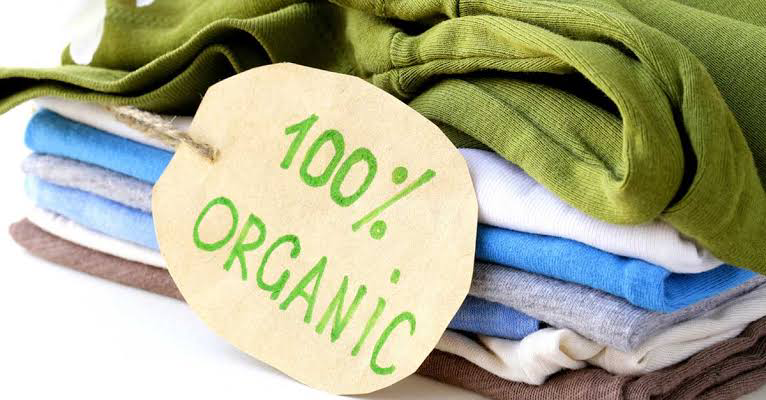The Fashion and Lifestyle Services sector, a vibrant and diverse industry in Nigeria, has a critical role to play in addressing environmental concerns in Africa's most populous country. This sector encompasses a wide range of activities, including clothing, textiles, beauty products, and accessories.
Fashion and Lifestyle are closely intertwined. Fashion, is an art form that allows individuals to express their selves, and tap into their creativity and sense of innovation. However, fashion choices can impact the environment positively or negatively as well as our values regarding production, consumption, and sustainability.
NEGATIVES
The Fashion sector, along with its supply chain, was ranked as the third largest polluter in the world by the World Economic Forum in 2021, making it a significant contributor to climate and environmental crises. Ten percent of the world's annual greenhouse gas emissions are released by it on average and it is projected that the whole amount of greenhouse gas emissions will rise by 50% by 2030.
The textile dyeing and finishing industry is also a significant contributor to water pollution. Textile production is estimated to be responsible for about 20% of global clean water pollution from dyeing and finishing products.
Source: (Muntaka Chasant/Shutterstock)
POSITIVES
Despite the challenges, the Fashion sector in Nigeria has made some commendable efforts to reduce its environmental impact:
1. Sustainable Textile Initiative:
Nigerian fashion brand, Maki Oh, uses sustainable materials like locally sourced organic cotton and traditional textiles like Adire and Batik to create stylish, environmentally-conscious traditional pieces. The Nigerian government has also launched initiatives to promote local textile production and processing, such as the Cotton Transformation Agenda.
3. Circular Economy Principles: The Lagos Fashion Week's "Green Access" initiative promotes sustainable fashion practices and encourages designers to adopt circular economy principles.
4. Education and Awareness: Lagos-based organization, Sustainable Fashion Africa, offers workshops and training sessions on sustainable fashion practices and environmental sustainability.
SOLUTIONS
To further reduce the net climate and environmental impact of the fashion and lifestyle services sector, several solutions can be implemented:
Adopt sustainable textile and plastic alternatives: We have to prioritize the use of renewable, biodegradable, and recycled materials for our fashion needs, and implement energy-efficient manufacturing processes.
Promote eco-friendly packaging and accessories: Our packaging and assessorial designs should be done with our planet in mind. Biodegradable options and minimal waste designs should be adopted.
Encourage conscious consumption and reduce fast fashion culture: Raise awareness about sustainable fashion choices, encourage mindful consumption, and empower consumers to make informed decisions.
Source: (JANTE TEXTILE)
IN-SITU LEADERSHIP:
Leaders and heads of Fashion and Lifestyle Services in Nigeria can be better equipped to drive sustainability in their sectors by collaborating with government agencies and NGOs to develop and implement sustainable fashion initiatives. For example, the Nigerian fashion brand, Maki Oh, has partnered with the Nigerian government to promote local textile production and sustainable fashion practices.
EX-SITU LEADERSHIP:
The Fashion and Lifestyle Services sector in Nigeria can serve as a model for other sectors in the country to incorporate sustainability practices into their operations by developing partnerships and collaborations with other sectors to drive sustainability across industries, and showcasing sustainable products and services as examples of innovation and design.
An excellent example of this is the 2023 Lagos Fashion Week's "Green Access" initiative brought together fashion designers, policymakers, and sustainability experts to promote sustainable fashion practices in Nigeria. Initiatives like this demonstrate the potential for the Fashion and Lifestyle Services sector in Nigeria to drive sustainability and inspire other sectors to follow suit.
CONCLUSION
The Fashion and Lifestyle Services sector in Nigeria has a critical role to play in addressing environmental challenges. By taking transformative actions, we can reduce the sector's environmental impact, promote sustainable practices, and contribute to a more environmentally sustainable future for Nigeria. Industry stakeholders, government agencies, civil society organizations as well as consumers must come together to drive this transformative action for environmental sustainability in Nigeria's Fashion and Lifestyle Services sector.
REFERENCES
http://www3.weforum.org/docs/WEF_Net_Zero_Challenge_The_Supply_Chain_Opportunity_2021.pdf
https://www.interviewmagazine.com/fashion/maki-oh-13-2013
https://wetalksound.co/blog/culture/nigerian-fashion-brands-that-promote-sustainable-fashion
GSAG: FASHION AND LIFESTYLE SERVICES
GSAM in Charge: GSAM Olamide ADEKOLA
Members:
Esther UBAK
Samson OLUWAGBOTEMI
Rukkaya MANSUR
Usman MUSA
Precious IKPEAMA












.jpeg)






0 Comments